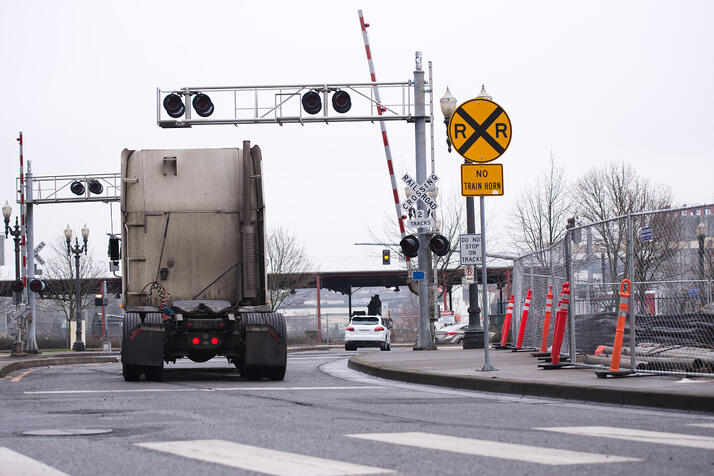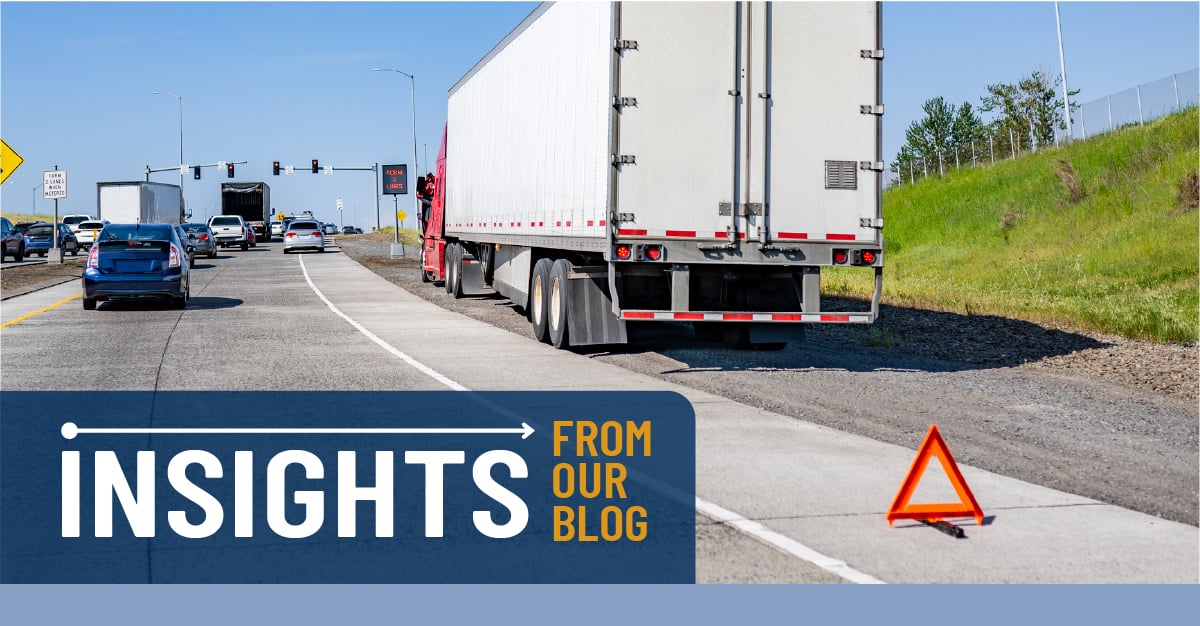Focus on Mindfulness to Improve Driving

With the advent of more and more technologies competing for our attention, it is becoming more difficult for humans to sift through a swarm of distractions and focus on those items that are worth paying attention to. For motor carriers, whose survival hinges on preventing crashes, driver distractions and inattention are not new. They are old enemies. Preaching to drivers to pay attention and focus on the road ahead is nothing new, yet preventable crashes still occur, leaving a motor carrier’s management team members scratching their heads in frustration. One solution, and arguably the solution to the distracted driving problem, is simple mindfulness.
Mindfulness refers to one’s ability to be in the moment and not only be aware of one’s surroundings – including potential driving hazards – but also be alert enough to make the right decision to avoid the hazard before a loss occurs. One could argue that mindfulness is what separates good drivers from bad ones. After all, most drivers face the same types of distractions on the road and inside the cab. From daydreaming and texting to gawking at a passing crash scene and losing focus on the vehicle in front of the truck, drivers have countless distractions competing for their attention. It is the mindful drivers, though, the ones who can drive millions of miles without a preventable crash, who can tune out what is non-essential and remain focused on what is important: driving.
As a leader in your organization, addressing mindfulness with drivers is one way to demonstrate your commitment to safety. Here are some ways to help drivers practice mindfulness and be in a state of moment-to-moment awareness.
PUT IN-CAB TECHNOLOGIES OUT OF SIGHT
Electronic logging devices (ELD), GPS units, satellite radios, and of course, cell phones are essential devices for drivers but are also the most common in-cab distractions. Before the truck moves, train drivers to start their ELDs, tune to their favorite radio stations and turn off their phones, and then put those devices out of sight. The driver will need to see the driving directions, but the GPS should be programmed before leaving, as well.
CREATE A SCHEDULE FOR CHECKING MESSAGES
With the cell phone and ELD out of sight and silenced, drivers will be less tempted to check messages. Encourage drivers to schedule a time to check messages, and train dispatchers not to call drivers during known driving times.
MENTALLY PREPARE BEFORE STARTING
Before starting a trip, encourage drivers to take a moment to get their heads in the right place and focus on the task at hand. Distracted driving is a choice, a bad habit that can be corrected. There is too much at stake for a driver to take for granted the responsibility of operating a commercial vehicle safely.
CALL TO ACTION
-
Train drivers on being mindful behind the wheel and avoiding distracted driving.
-
Hold dispatchers accountable for adhering to each driver’s call-in schedule.
-
Monitor Safety Measurement System (SMS) results for distracted driving violations and behaviors.
-
Develop a company policy that prohibits distracted driving.
Note: These lists are not intended to be all-inclusive.
The information in this article is provided as a courtesy of Great West Casualty Company and is part of the Value-Driven® Company program. Value-Driven Company was created to help educate and inform insureds so they can make better decisions, build a culture that values safety, and manage risk more effectively. To see what additional resources Great West Casualty Company can provide for its insureds, please contact your safety representative, or click below to find an agent.
© Great West Casualty Company 2020. The material in this publication is the property of Great West Casualty Company unless otherwise noted and may not be reproduced without its written consent by any person other than a current insured of Great West Casualty Company for business purposes. Insured should attribute use as follows: “© Great West Casualty Company 2020. Used with permission by Great West Casualty Company.”
This material is intended to be a broad overview of the subject matter and is provided for informational purposes only. Great West Casualty Company does not provide legal advice to its insureds, nor does it advise insureds on employment-related issues. Therefore, the subject matter is not intended to serve as legal or employment advice for any issue(s) that may arise in the operations of its insureds. Legal advice should always be sought from the insured’s legal counsel. Great West Casualty Company shall have neither liability nor responsibility to any person or entity with respect to any loss, action, or inaction alleged to be caused directly or indirectly as a result of the information contained herein.





